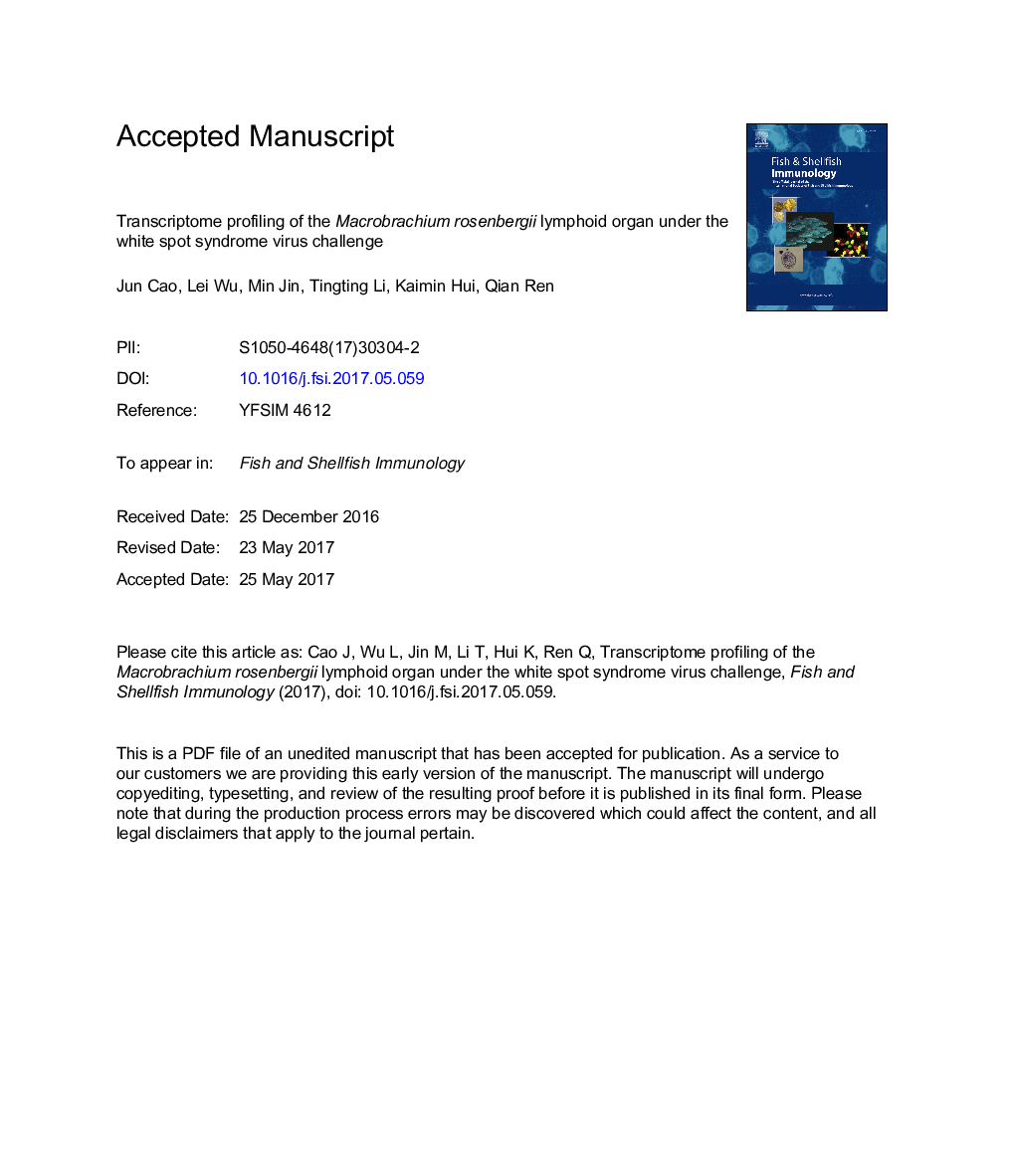| Article ID | Journal | Published Year | Pages | File Type |
|---|---|---|---|---|
| 5540830 | Fish & Shellfish Immunology | 2017 | 44 Pages |
Abstract
Macrobrachium rosenbergii is a crustacean with economic importance, and adult prawns are generally thought to be tolerant to white spot syndrome virus (WSSV) infection. Although certain genes are known to respond to WSSV infection and lymphoid tissue is an important immune organ, the response of lymphoid organ to WSSV infection is unclear. Next-generation sequencing was employed in this study to determine the transcriptome differences between WSSV infection and mock lymphoid organs. A total of 44,606,694 and 40,384,856 clean reads were generated and assembled into 73,658 and 72,374 unigenes from the control sample and the WSSV infection sample, respectively. Based on homology searches, KEGG, GO, and COG analysis, 21,323 unigenes were annotated. Among them, 4951 differential expression genes were identified and categorized into 244 metabolic pathways. Coagulation cascades, and pattern recognition receptor signaling pathways were used as examples to discuss the response of host to WSSV infection. We also identified 12,308 simple sequence repeats, which can be further used as functional markers. Results contribute to a better understanding of the immune response of prawn lymphoid organ to WSSV and provide information for identifying novel genes in the absence of the prawn genome.
Related Topics
Life Sciences
Agricultural and Biological Sciences
Aquatic Science
Authors
Jun Cao, Lei Wu, Min Jin, Tingting Li, Kaimin Hui, Qian Ren,
